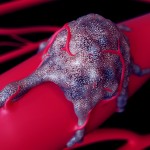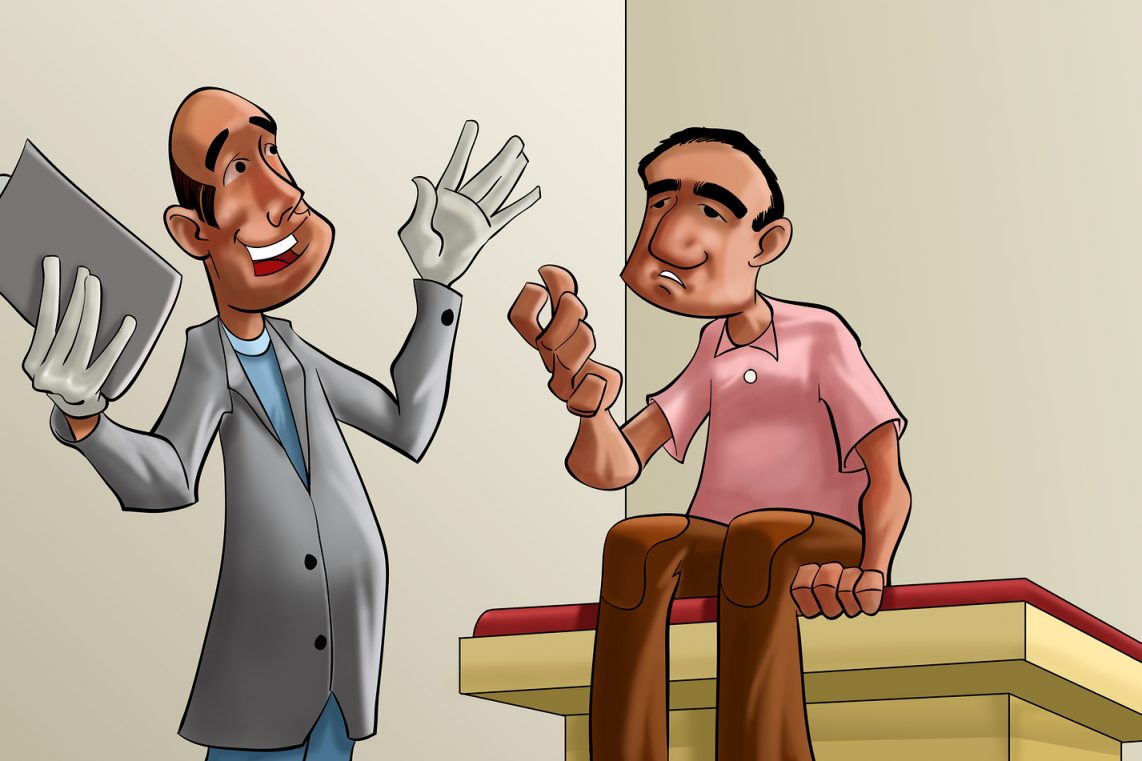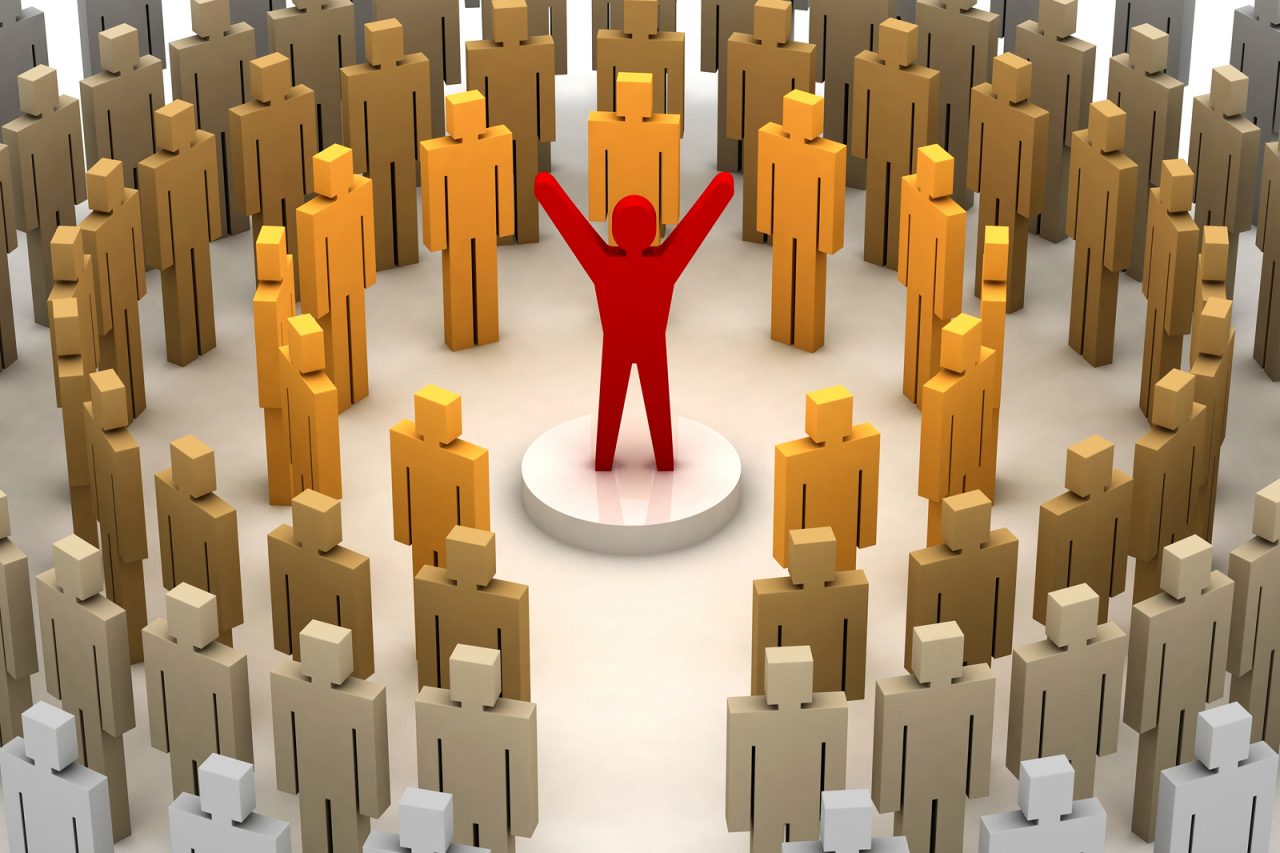2:15 am, July 2, 1981; Its 83 degrees outside in a loud, humid Chicago night, but here the scrubbed air is chilled, dry, while white tiles reflect the occasional nurse, who appear and vanish, and the rhythmic sighs of the machines, gasping somewhere down empty halls, are occasionally interrupted by a frantic chime.
My first night in the unit and my first patient’s chart. Papers spill from the accidentally opened binder onto the counter. I sort through the unfamiliar mess. Why don’t the holes line up, anymore?
Across, through the open door, his pain seems to have stopped. After the morphine he sleeps, shallow breathing with an occasional expiratory wheeze. I dial the attending’s number.
“Dr. Fader, this is Jim Salwitz … I’m a new intern in the CCU. I’m calling you about your patient, Mr. Albey. He got admitted tonight.”
“Why?”
“He came in with chest pain.”
“When did it start?”
“I am not sure, it was over his sternum, pressure pain. I don’t think it radiated.”
“How long did it last?”
“It stopped when we gave him nitroglycerin and morphine.”
“Did his EKG change?”
“When he came into the ER?”
“No, when you gave him the nitro.”
“I don’t know.”
“Did he have any rales with the pain?”
“I did not examine him before we gave him the medication, so I don’t know. I think his lungs are clear, now.”
“Was there elevation of the ST segment?”
“I can check.”
“Check…you are going to check? Well, what in the HELL do you know? You wake me up in the middle of the fucking night and you have not even examined the patient. You don’t know the history, you don’t know the EKG, or I suppose the labs. What kind of intern are you, anyway! One of those foreign grad psychiatrists? The god-damn nurse could do better. The god-damn nurse would do better! If you are going to take care of my patients … if you are even going to stay working in the hospital at all, then you had better get your head out of your ass. Do your job. Call me when you are ready to be a doctor!”
The phone is dead, but I still hold it to my ear. My heart pounds, my eyes swell, nausea sweeps into my throat. I begin to shake. I grab a garbage pail and throw up.
My first patient. My first contact with a senior attending. A very senior attending. An attending that holds my career in his hand. What will my wife say that we moved 1000 miles to non-air conditioned walkup, in a town where we know nobody, when I get fired less than 24 hours after my residency began? How had I failed, so fast?
Moments pass. My heart slows. Shaking still. Deep breath. Stand up on light legs. Move on.
But, I learn. A practicing physician less than a day, I have been taught the most important lesson. I must focus, be compulsive and tough. And angry. I must always be just a little angry. I also know that the next three years are going to be very hard, always on the edge. If I survive. And third, the most important lesson branded into my soul, is that no matter how many colleagues surround me, no matter how strong the staff, no matter how much adoration, success and support I get from patients, I, doctor, am always alone.
Ask any a physician, of a certain age, and they will tell you this same story. The deliberately cut surgical glove, being expelled from the room, a demeaning insult in front of a patient, the shredded document thrown in your face, the screamed lecture in the nursing station about an obvious disease, the smashed specimen, the slammed door or the long series of insults while arms and back burn holding a retractor throughout the night. Those that get into medical school were selected as the best. The classes teach that all knowledge must be yours. Residency slams home the final message. It is all on you now. Medicine is fear for the mistakes you will make and guilt for the ones that will haunt you.
For 100 years, physicians have been trained that every variation from perfection is their fault. Every pain, every abnormal lab test, every untoward outcome is something they should have prevented. No matter that they are tired, overwhelmed or that a particular disease is something about which they are not experienced or trained, it is their burden. You can ask for “curbside consults,” a little advice from a friendly colleague, but the responsibility is yours. Just as there is no “I” in TEAM, there is also no “P.” Alone, you are Captain of the ship and you will go down with it.
The doctor of 2016 is rising each morning to a different world, only he does not know it yet. Healthcare is changing, cataclysmic shifts. It is not just the overwhelming complexity of the science, the incredible pressures of cost, the intrusion of information technology, the empowerment of other medical professions, or the demand by patients to control their own destiny. These are just the wind and waves which change the direction of the boat.
The doctor will be a team leader and team participant. Nurses will not just “take orders,” but physicians will depend on their input and judgement, as they will work with nurse practitioners, physician assistants, nutritionists, physical therapists, and even utilization management as colleagues. Hospitals will set up systems, structures and guidelines to complement the physician’s skill.
The doctor will expect the healthcare system to provide critical base support, such as infection prevention, sepsis, shock and cardiac arrest response, DVT prophylaxis, catheter and IV total management, care guidelines, automatic ordering of vital interventions, antibiotic and diagnostic stewardship, complex discharge planning, mobilization, rehab and a host of value added services, not the least of which is financial management. The physician will demand constant feedback, in real time, of quality and outcomes. IT will be at the core. The patient will be intimately involved, in control, of every test, result and decision. And critically, all of this will be bound in a culture not of patriarchy, hierarchy and dominance, but of transparent equality and, dare I say it, true teamwork.
This is a transformational moment in medicine. The doctor must learn how to organize and listen to all caregivers and every patient. Error is about systems, not screw-ups, and deviation represents an opportunity to optimize value. For the doctor it will be a different place, a different world. Not one of anxiety and guilt, but of support and coordination. A healthier environment in which to heal. A leveled and empowered true system of care. And, it begins with those most important words: Doctor, you are not alone.







4 Comments